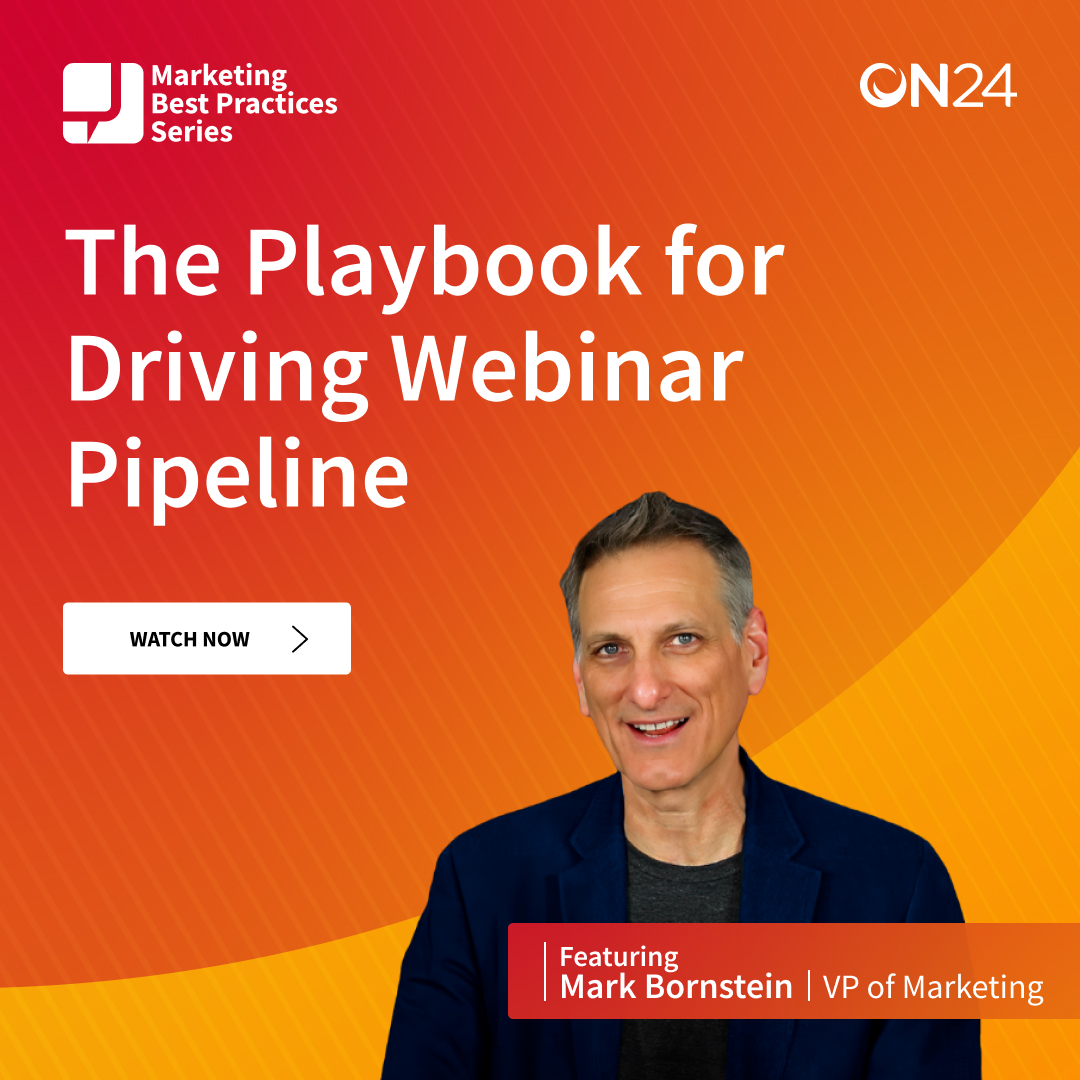Maximize B2B Success: A Strategic Playbook for Engagement and Growth

Today, good B2B marketing isn’t about creating a deluge of leads. It’s about aligning your message with prospects on a more profound and personal level. The best way to achieve that alignment is by driving digital engagement.
Digital engagement—where marketers, customers, and prospects directly interact with one another over digital channels—empowers marketing teams to understand audience pain points better. With this understanding, marketing teams can tailor their messaging more effectively, fuel conversions, and generate consistent pipeline growth.
But how can marketers boost digital engagement with B2B customers in the first place? Well, our very own Mark Bornstein shared his insights in our latest edition of the Marketing Best Practices Series. Here’s what he had to say.
Why Digital Engagement Is Critical for Today’s B2B Marketer

Boosting engagement requires B2B marketers to change their mindset. One-off, tactical activities, such as running one-on-one webinars or creating more content, won’t cut it anymore.
Audiences expect more. They expect you to understand their needs and cater to their pain points. But to know the pain points, you need to make your digital touchpoints engaging and interactive. You need to empower audiences to inform you.
Webinars and virtual events provide precisely that. They’re always-on experiences audiences can watch both live and on-demand. And, with the right engagement tools built into the experience, these events can empower attendees to share where they are in the customer journey, their interests and what they want from your organization.
Engaging, audience-centric experiences allow B2B marketers to go from generating leads to qualifying and converting them into a predictable pipeline.
It’s the difference between gathering names occasionally and developing portfolios over time. It’s quality over quantity. Not only that, but it’s a new mindset that empowers you to recalibrate your objectives and strategies and drive pipeline growth.
How to Build a Webinar for Effective Digital Engagement

Webinars provide a unique platform to converse with your audience on a more personal and interactive level. But that engagement is only as powerful as the intent you have behind it.
Ask yourself: Are you trying to get attendees to register for an upcoming event? Book a meeting? Respond to a poll? All of the above? Then, you need to ensure you not only provide the tools to take those actions in your webinar but also the time to call those opportunities out in your presentation.
Just remember the acronym ART.
- Announce your engagement tools and what they do.
- Remind attendees of your engagement opportunities.
- Timely pause so audiences can take action.
For example, let’s say you want to understand your audience’s biggest pain points. During housekeeping, your host can share that you will push polls periodically throughout the webinar. Your host can also remind attendees of the polls as you reach those designated points in your event and provide a five or ten-second window for them to select their response.
Create a Buyer’s Journey in your Webinar

Engagement tools allow marketers to interact with attendees at different levels of seniority and sophistication. CTAs can direct managers to meetings, resource links can provide implementors with guides, and Q&A and chats give novices the opportunity to ask questions.
And all of this can be done through just one event.
It’s important to vary your webinar engagement opportunities. That’s because it’s rare that you’ll ever know where everyone is in their buying journey. For example, you may be giving a top-of-funnel webinar while most of your attendees are already primed and ready for positioning. If you’re not ready to provide that material, you may have missed out on crucial data that could have moved deals.
Providing options for attendees at different stages is increasingly important as the buyer’s journey has changed. As Gartner notes, the buying journey, which now often consists of six to 10 individuals, is no longer linear, with most research being done online.
So, while you may design a webinar with a specific intent in mind—providing information to top, middle, or bottom-of-funnel audiences, for example—empowering attendees to signal where they are in their buying journey regardless of the event is crucial.
Use Engagement Data to Drive Personalization

Catering to different buying stages isn’t the only thing you can do to drive effective engagement. You can also use the gathered engagement data to segment and personalize digital experiences.
For example, let’s say someone registers for a webinar. Normally, what would happen next is that they would get a confirmation email and … that’s it. They’d have to wait until the event to engage with your brand.
But, advanced marketers kick things up a notch ahead of the event. Instead of the typical webinar confirmation email, these B2B marketers use the first-party data the registrant provided to create a customized landing page offering additional content, webinars, content hub or even a free trial or demo. Now you’re delivering a mini-experience — not just another email.
This approach can be replicated after a webinar as well. With segmentation, marketing teams can easily invite to even more engaging experiences while also providing no-shows with dedicated recap pages featuring all the topics they missed out on.
The key is to transition from the live-only mindset. With nearly 50% of people watching webinars on demand, you risk missing out on half your audience if your entire strategy is centered around a live event. Instead, consider how to encourage more people to watch post-live and engage with your content on demand.
Go Beyond Lead Generation

In the digital age, successful B2B marketing hinges on engagement. By shifting our focus from quantity to quality interactions, we can better understand our prospects, refine our objectives and strategies and ultimately stimulate conversions and pipeline growth. This approach not only streamlines efforts but also enhances the delivery of personalized marketing experiences.
Webinars, a potent platform for businesses, are instrumental in fostering audience engagement and driving conversions. Designing the webinar with strategic engagement tools is imperative to fully leverage their potential. This caters to the varied stages of the audience’s journey and amplifies the chances of conversion.
Adopting an engagement mindset is essential for B2B marketing success. This requires crafting consistent, tailored experiences that captivate audiences both before and after the event. Using the data gathered from these interactions, we can transition from a lead-centric approach to a more efficient, data-driven method of B2B marketing.

